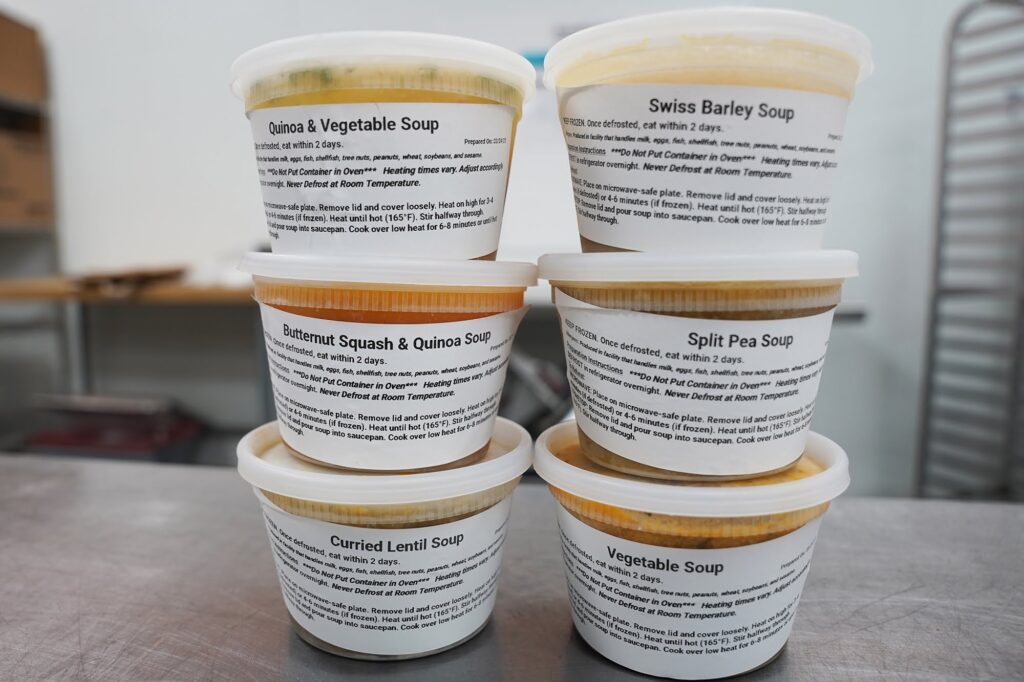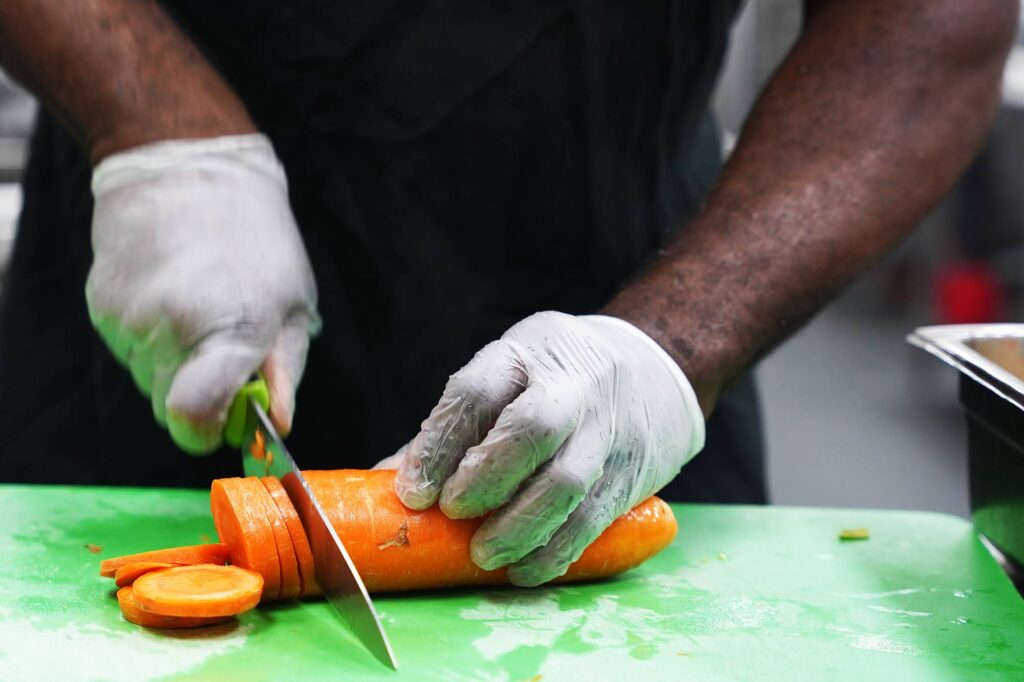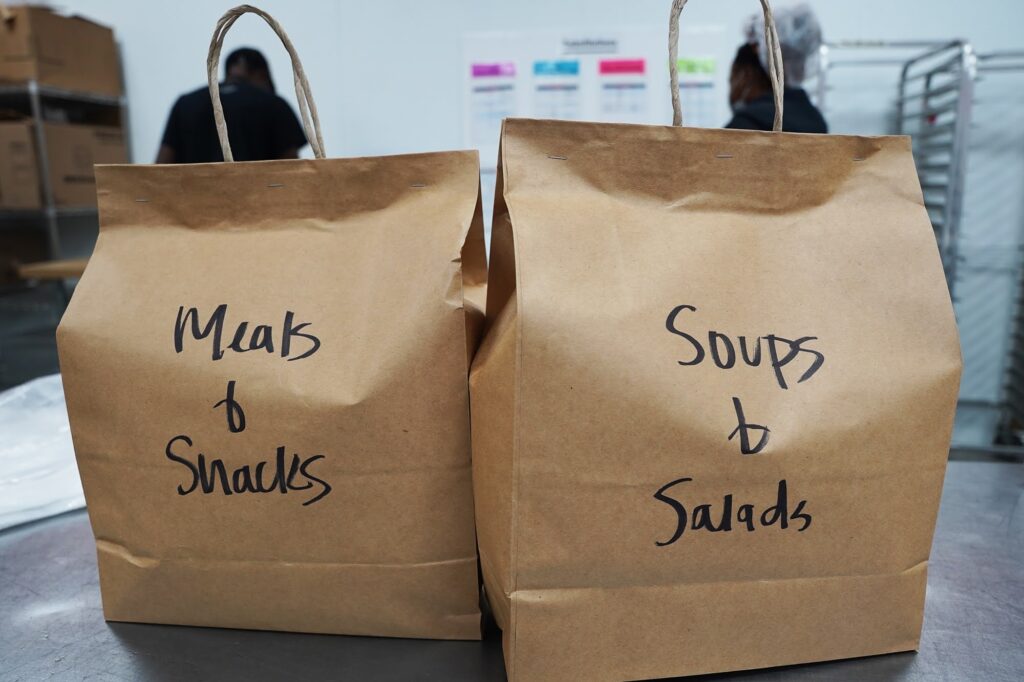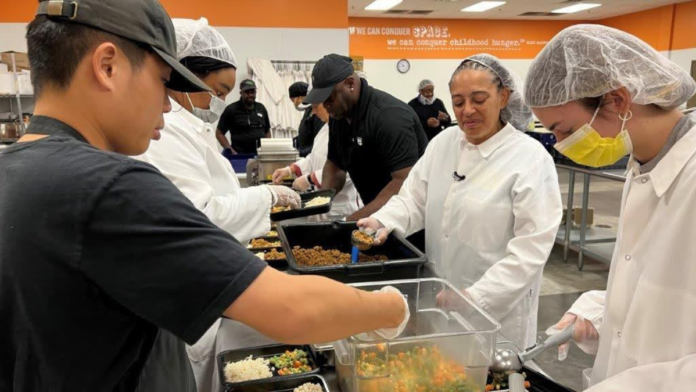( ENSPIRE Community Spotlight ) With The Help Of A 12 Month Training Program and Health & Hunger Task Force
ENSPIRE Contributor: Gabrielle Maya
The Second Harvest Food Bank of Central Florida is the largest charitable domestic hunger-relief organization in the United States. This organization has now expanded its health and hunger programming with the assistance of the DaVita Giving Foundation. With their funding, the Second Harvest Food Bank has launched a new pilot program, Medically Tailored Meals, to help people who experience food insecurity and manage at least one severe illness, specifically chronic kidney disease.
Food is critical in serving a healthy lifestyle and medicinal purposes. Now patients especially those who suffer from chronic kidney disease can be eligible for food bank enrollment. According to Chief Health Systems & Financial Officer at Second Harvest, Dawn Koffarnus, “This is the next way for Second Harvest to ‘feed hope’ to our Central Florida neighbors.” An estimation of 133 million Americans suffers from at least one chronic illness: hypertension, heart disease, or diabetes. “Food insecurity not only increases the risk of someone developing health issues but can also worsen the complex challenges of managing a chronic illness. We hope to transform lives by delivering meals that are nutritionally created to treat a specific ailment directly to the homes of patients in need,” states Koffarnus.

ENSPIRE has interviewed Second Harvest to discuss their mission, food insecurity, training, the meal program process and assembling, supporting organizations, and what the future holds.
When did the creation of the Second Harvest Food Bank start and what is its mission?
Second Harvest Food Bank of Central Florida started 40 years ago to collect, store and distribute donated food to help fight hunger in the Orlando area. Since then, the organization has grown to include four distribution centers and more than 625 partner programs such as emergency food pantries, soup kitchens, women’s shelters, senior centers, daycare centers, and Kids Cafes across seven Central Florida counties.
What are some reasons why many people have food insecurity?
Our neighbors may experience food insecurity for any number of reasons, such as layoffs at work, an unexpected car repair, or a medical diagnosis that can suddenly force a family to choose between paying bills or buying groceries.
Larger, systematic causes of food insecurity include lack of affordable housing, education, unemployment or low-wage jobs, and chronic diseases or lack of access to health care.
Explain the 12-month specialized acceleration training, what did you learn that benefited your knowledge of food and the Medically Tailored Meal program?
The Food is Medicine Accelerator team trains participants from nonprofit food agencies in the operational, policy, and contracting mechanisms to become providers of medically tailored meals (MTM). The MTM model features home-delivered meals that are designed by a registered dietitian nutritionist and that reflect an appropriate, evidence-based dietary therapy for chronic illnesses.
What specific foods help individuals with chronic kidney disease and why? Any other foods you will be using to expand your assistance for individuals with diabetes, hypertension, heart disease, and more?
For chronic kidney disease, each meal follows guidelines for low sodium, low phosphorus, and low potassium. As additional programs are added, recipes will be developed to follow the recommended dietary guidelines as needed.

Can you please explain your Medically Tailored Meal assembling process and preparation?
Each meal is from a chef-developed recipe and approved by a registered dietician nutritionist. Our team of cooks prepares the healthy, nutritious ingredients and volunteers help assemble and package the meals for delivery. Each patient receives seven lunches, seven dinners, seven snacks, and two salads delivered weekly.
With the assistance of the Health & Hunger Task Force, which food banks and health organizations have supported your mission, MTM, and cause?
Since the launch of the Health and Hunger Task Force in 2016, Second Harvest Food Bank has partnered with local hospital systems, community health centers, nonprofit health providers, and nutrition and health-focused organizations to measurably affect the health and well-being of our neighbors by using food as medicine. The MTM program was recently launched with a grant from the DaVita Giving Foundation.
Where do you see Second Harvest Food Bank in 5 to 10 years?
In five to ten years, Second Harvest Food Bank will be continuing to expand its core mission of providing emergency food every day for hundreds of thousands of our neighbors facing hunger. Second Harvest expects to have a deeper impact on overall community health through both MTM and other, more wide-ranging nutrition programs, and perhaps expanding job training initiatives to other areas if resources can be secured. Further, Second Harvest hopes to have involved and motivated ever greater numbers of people in our community to use their voices, so that hunger and nutrition can become the public policy priority that it should be.

Their goal is to expand their food prep and help with different illnesses. In 2016, Second Harvest created the Health & Hunger Task Force. This task force sought opportunities for food banks and healthcare organizations to collaborate effectively and help Central Floridians by using food as medicine. This will lead to natural healing methods for various illnesses. In 2022, Second Harvest received training on operating an MTM program by participating in a 12-month accelerator which was provided by the Food is Medicine Coalition, Community Servings, God’s Love We Deliver, the Nonprofit Finance Fund, and the Center for Health Law and Policy Innovation of Harvard Law School. Second Harvest seems to be on the right track to heal many different lives.
Second Harvest Food Bank distributes food and grocery products to over 625 local nonprofit feeding partners in Central Florida. With the power of volunteers, community care, and donors, they can distribute 300,00 meals every day to a seven-county service area. For more information on SHFBCF visit www.FeedHopeNow.org. Follow them on Instagram for updates on their mission and meal plans.
Related Articles: Wawa Pledges $1 Million to Second Harvest to Feed More Children & Families, Indigenous Food Activist Sean Sherman Named to TIME’s List of 100 Most Influential People







